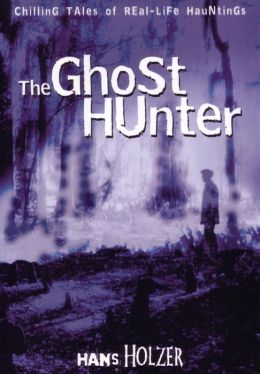We at Gazalapalooza rightly pride ourselves on the long
roster of fantastic authors from all over the world who have kindly passed
through our notorious turnstile to submit themselves to the merciless glare of
the Author Spotlight. Yes, we’ve had authors who are attorneys. (Your humble
correspondent is indeed one himself.) Yes, we’ve featured authors who are professional
political speechwriters. Yet today’s edition positions us to present our dear
readers something even in our estimable
history
unprecedented
– an author who habituated long-abandoned mansions
and misty midnight graveyards gigging as a paranormal investigator before taking
his lawyerly talents to Washington, D.C. to infuse Capitol Hill’s hallowed hallways
with a whiff of literary terrors distinctly apolitical. That writer is
Brett J.Talley.
Not merely the subject of a recent profile in
The Washington Post, Talley is the Bram Stoker Award-Nominated scribe of suspenseful horror fiction
That
Which Should Not Be, and
The Void. His is also the pen documenting matters spectral
in the nonfiction tomes
Haunted Alabama Black Belt, and
Haunted Tuscaloosa. If
this isn’t pedigree sufficient to raise hairs on the back of your neck, dare to
spend time alone with our guest’s array of short stories, every one as expertly
crafted and widely acclaimed as his books, and each finely honed to drive a
jagged wedge between a sound night’s sleep and you.
The story Talley brought along for our discussion today is
his latest work, a novella titled The Reborn. After treading about in spooky cemeteries
and shunned premises (much less in Congressional corridors renown for their otherworldly
disharmony), it’s not altogether unsurprising Talley appears fairly comfortable strapped to a
hard wooden chair under the blistering blast of our klieg light array. Let’s
proceed.
Gazala: In my
omnipotence, I've sentenced you to be stranded alone on a desert island for
offenses best left unnamed. In my beneficence, I've decided to allow you a
limited amount of reading material to make your stay a little less bleak than
it would otherwise be. I'll spot you your religious text of preference, and the
collected works of William Shakespeare. In addition to those, name the one
fiction book, and the one nonfiction book, you'd choose to take with you, and
tell why you choose them.
Talley: The fiction
answer is actually pretty easy for me, though the answer might be surprising to
some of my readers—The Great Gatsby. I’ve always been a reader, but I didn’t
love reading until I read that book for the first time. It’s one of a handful
of books I’ve read more than once, and perhaps the only book I’ve read more
than twice. It is, in many ways, a perfect book. Not a word is out of place,
the story is timeless, the characters all too human. And it accomplishes all
that despite clocking in at only a little over 40,000 words. Remarkable, really.
As for non-fiction book, while How To Survive on a Desert
Island is tempting, I’m going to cheat a little and go with the Encyclopedia
Britannica. I’m one of those people who can look something up on Wikipedia and,
three hours and fifteen articles later, realize I let the day get away from me.
Since I assume I can’t have a laptop, I’ll go with the dead-tree version.
Gazala: Your newest
book is an excellent and gripping post-apocalyptic reincarnation thriller titled
The Reborn. The novella reveals how authorities capable of scrutinizing DNA to
identify murderers, rapists, and other criminals in utero are obliged to
eliminate these miscreants while they're still womb-bound. Except all is never
what it pretends to be, and Marcus Ryder, the soldier who killed Genghis Khan
reborn, finds himself and his compatriots battered by brutal moral ambiguities
in a very savage world. I've read it. I enjoyed it immensely, and recommend it
highly. Shockingly enough, however, from time to time my bare recommendation
doesn't always motivate a book's potential reader to become a book's actual
reader. Tell us something about The Reborn, and why its potential reader should
make the leap and become its actual reader.
Talley: Whether you
want a book that makes you think or you want a thrill ride from the first page,
The Reborn is for you. I know that’s probably what every author says about
their books, but I’m serious about it here. And that was my goal. I wanted to
write a book that challenged the readers’ beliefs about morality and justice,
no matter what those beliefs might be. But I also wanted to write a book that
kicks ass. You’ve got firefights, chases, nuclear strikes, world wars, gun
battles, artillery barrages, pretty much everything you could imagine. And even
better, it’s short! Just a little bit shorter than The Great Gatsby, as a
matter of fact.
Gazala: What are
books for?
Talley: Books are
like people; they have limitless possibility for good or ill. They are for
entertainment, for learning, for edification, for spreading a message. They can
rally people to do the right thing or rally the mob to do evil. A human life is
fleeting, but words can be eternal. Every person has a story to tell, and every
book is a window into its author’s soul.
Gazala: W. Somerset
Maugham said, "There are three rules for writing the novel. Unfortunately,
no one knows what they are." Do you agree, or disagree, and why?
Talley: I agree
completely. I occasionally read those “10 Rules for Writing” blog posts just
for laughs. A blank page is not something to be feared, but to be relished. It
is the author’s playground, his universe. In that world, we are all gods, and
we can create or destroy whatever we see fit. Why would we cabin ourselves,
place false limits on ourselves? Now, are there rules for getting published? Of
course, and the bigger the house you are looking to land the more rules there
will be. And yet, running throughout all those rules will be “originality.” How
can we be truly original if we are constantly afraid we are going to violate
someone else’s rules? If I had one piece of advice I could give to new writers
it would be this—be fearless.
Gazala: You'll
pardon me -- somebody who's the spitting image of Idi Amin Dada is beating on
my front door. Ask yourself question, and answer it.
Talley: Question: Ha.
Well played. I’ll go with, “What scares you?” Answer: H.P. Lovecraft once said
that “the oldest and strongest emotion of mankind is fear, and the oldest and
strongest kind of fear is fear of the unknown.” I think Lovecraft is absolutely
right, but I would also add that horror is not always about fear, as strange as
that may seem. It is also about unsettling the reader, about opening them to
ideas that are foreign to them and making them see things they would rather
not.
Take Poe for instance. Some might claim (not this writer) that Poe is tame by today’s
standards. Whether or not that is true, the horror contained in Poe was
absolutely shocking for its time. Poe talked about things that polite society
preferred not to discuss. I think that’s why in today’s horror you see so much
overt and what might be termed “socially deviant” sexuality in many popular works.
The authors are trying to break through societal norms and horrify their
audience in a fundamental way.
Personally, I prefer the other kind of horror. I want my
readers to peer into the unknown. I want them to see what lurks in the shadows
or perhaps to discover that, indeed, the shadow itself is a lurking thing.
The shadow itself is a lurking thing. Very well said, Mr. Talley.
And like a bedeviled
matryoshka doll, there slinks inside the lurking shadow
itself yet another skulking thing, waiting, watching, wanting… But you needn’t wait
to feed your fevered head
The Reborn. All you need do is draw a deep breath,
steady your shuddering nerves, and
click here to snatch a copy right now from Amazon.






